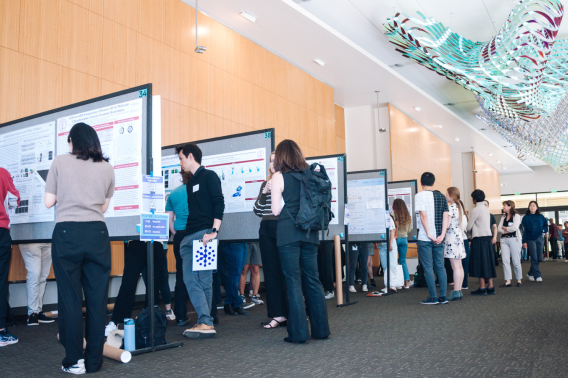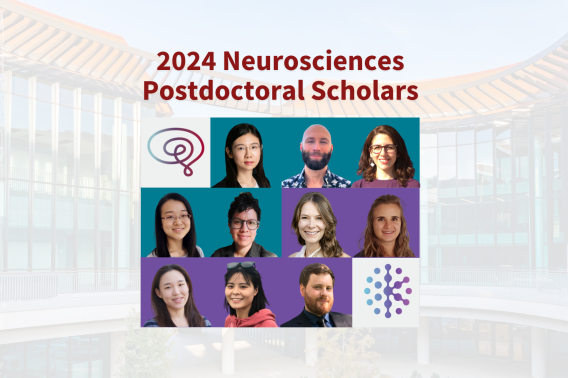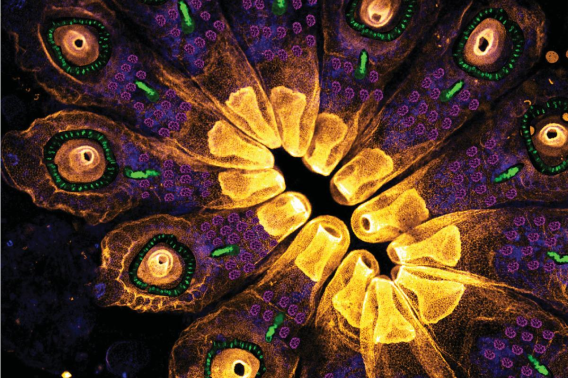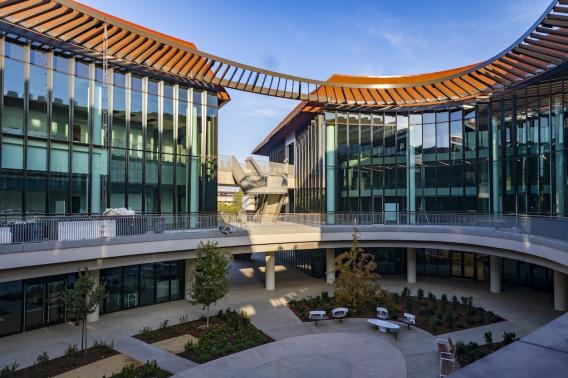Bold ideas to advance healthy brain aging win inaugural Knight Initiative grants
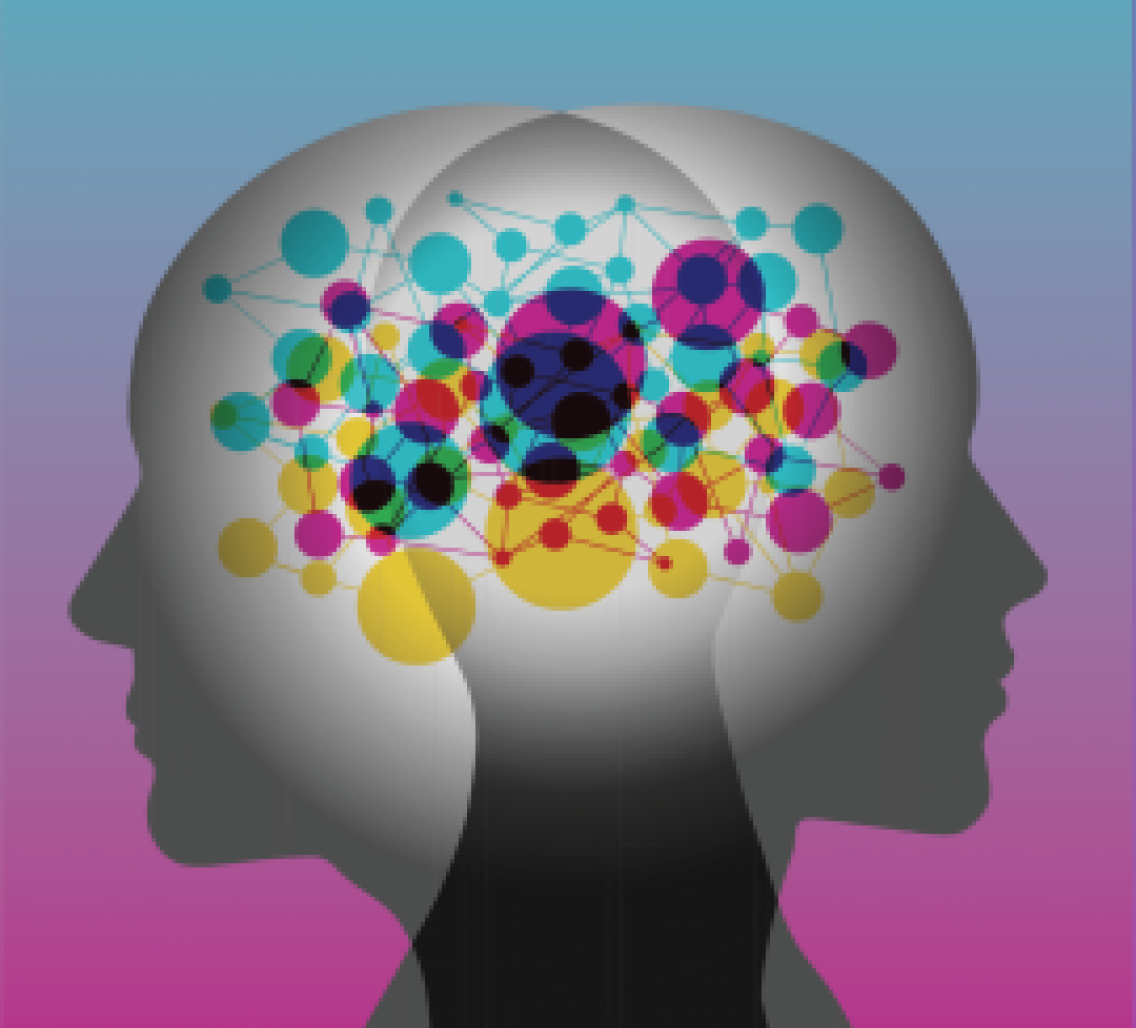
The Phil and Penny Knight Initiative for Brain Resilience is proud to announce the recipients of its inaugural 2022 Innovation and Catalyst Grants.
These 16 groundbreaking research projects will receive a total of $15.5 million to pursue fresh ideas in the science of healthy brain aging and spearhead innovative methods of combating neurodegenerative conditions such as Alzheimer’s and Parkinson’s diseases.
“Together, these innovative proposals will pursue transformative ideas outside the mainstream that will advance our mission to extend the healthy lifespan of the human brain,” said Tony Wyss-Coray, PhD, the D.H. Chen Distinguished Professor of Neurology and Neurological Sciences and Director of the Knight Initiative.
The projects are led by scientists from 12 departments across Stanford’s schools of Medicine, Engineering, and Humanities and Sciences, and include collaborators from an even wider range of disciplines.
“We were looking for bold ideas that transcend the assumptions and biases of the field, and were delighted to receive nearly three dozen excellent applications from some of the best scientists at Stanford, many of whom come from disciplines outside the neurosciences and have never worked in neurodegeneration before.”
Tony Wyss-Coray
Director, Knight Initiative for Brain Resilience
Six research projects have been selected to receive $1.5 million, 3-year Innovation Grants based on their potential to lead to transformative discoveries in the areas of brain resilience and neurodegeneration.
Funded projects will pursue a wide range of approaches, including addressing the role of inflammation and the microbiome in aging and neurodegeneration, exploring how to therapeutically mimic the well-known brain benefits of exercise to promote healthy brain aging, and developing pioneering methods to fight neurodegeneration using engineered immune cells.
Because of the extraordinary number of promising proposals, the initiative has also elected to fund an additional 10 projects with smaller Catalyst Grants — providing $500,000 over 2 years to kickstart exciting and previously under-explored research directions.
These projects include initiatives to employ machine learning to identify markers of resilience in the brains of older adults; explorations of the roles of endocannabinoids, cellular stress, and sleep circuits in brain aging; and efforts to develop new clinical tools for Parkinson’s disease, traumatic brain injury, ALS (Lou Gehrig’s disease) and more.
Funded Projects
Innovation Grant Projects
Manipulating inflammation in the aging brain to promote brain resilience
Lead faculty researcher: Kenan C Garcia
Faculty team: Anne Brunet, Ami Bhatt
Inflammation is a hallmark of brain aging, yet the source of inflammation in the old brain — and how to eliminate it — is unknown. This team aims to provide insight into how inflammation affects the aging brain, which could potentially lead to the generation of new therapies to promote brain resilience.
Mechanistic dissection and therapeutic capture of an exercise-inducible metabolite signaling pathway for brain resilience
Lead faculty researcher: Jonathan Z Long
Faculty team: Thomas Montine, Steven Banik
Exercise improves cognition and protects against age-associated neurodegenerative diseases, but further research is needed to understand exactly how this occurs. This project aims to pave the way for therapeutics that can capture the benefits of exercise for promoting brain resilience.
Mutant microglia and resilience to Alzheimer’s disease
Lead faculty researcher: Siddhartha Jaiswal
Faculty team: Marius Wernig, Jody Elizabeth Hooper, Caleb Lareau
This project aims to identify how mutant peripheral immune cells that invade the brain might actually reduce Alzheimer’s disease risk. The research will explore how to mimic these cells’ resilience-promoting effects to design new Alzheimer’s therapies.
From gut to brain: reprogramming peripheral macrophages at the intestinal barrier to prevent age-associated inflammation and cognitive decline
Lead faculty researcher: Katrin I Andreasson
Faculty team: Ivan Soltesz
This team will investigate whether a decline in intestinal immune cell metabolism drives age-related inflammation and cognitive decline. They hope to develop a novel approach to enhance cognitive resilience by replacing aged intestinal macrophages with metabolically healthy ones.
Unleashing engineered T cells as disease sensors and therapeutic actuators for neurodegenerative disease
Lead faculty researcher: Aaron D Gitler
Faculty team: Rogelio A Hernandez Lopez, Alice Y Ting
This project will explore for the first time whether amyotrophic lateral sclerosis (ALS) and frontotemporal dementia (FTD) result from immune cells attacking altered neurons. The team aims to pioneer the first use of engineered immune cells as therapies for neurodegenerative disorders.
Role of Proteostasis and Organelle Homeostasis in Brain Resilience during Aging
Lead faculty researcher: Judith Frydman
Faculty team: Wah Chiu, Serena Y Yeung
This team aims to define how and why protein production breaks down in aging cells, leading to disease. This research may lead to new diagnostic and therapeutic approaches against neurodegenerative diseases and potentially aging itself.
Catalyst Grant Projects
Predicting and promoting resilient brain aging trajectories
Lead faculty researcher: Anne Brunet
Faculty team: Karl A Deisseroth, Scott W Linderman, Daniel F Jarosz
Using new animal models such as the African killifish, this team aims to develop approaches to predict individual brain aging trajectories early in life based on behaviors that can be modulated to promote healthy memory, executive function, and processing speed, and counter dementia.
Resilience to Synaptic Impairments in Neurodegenerative Disorders
Lead faculty researcher: Thomas C Sudhof
Faculty team: Axel T Brunger
This team will explore the idea that neurotoxic protein aggregates seen in neurodegenerative disorders act at the synaptic connections between cells, and that resilience against these disorders may come from natural synapse-supporting factors that could be transformed into new forms of therapy.
Preserving motor engrams in Parkinson's disease: Neural circuit and transcriptomic studies and strategies for resilient motor control
Lead faculty researcher: Jun Ding
Faculty team: Mark Schnitzer, William J Greenleaf
This team aims to better understand how Parkinson's disease attacks the brain's basic motor programs and to spawn novel therapies against the disease using gene-editing technology.
Mitochondrial DNA and Brain Resilience
Lead faculty researcher: Michelle Odden
Faculty team: Marion S Buckwalter, James Y Zou
This team proposes the first comprehensive study of how mitochondrial DNA is related to cognitive function and susceptibility to dementia in a diverse population of over 11,000 adults. The outcomes of this study will provide insight into possible racial disparities in brain health.
Sleep circuits in neurodegenerative disease and aging
Lead faculty researcher: Julie A Kauer
Faculty team: Luis de Lecea, Maria Inmaculada Cobos Sillero, Brice L Gaudilliere
This team plans to study whether changes in neurons in the midbrain that regulate sleep, wakefulness, and immunity could contribute to aging and neurodegeneration. If successful, this information could rescue deficits in sleep and restore a normal immune profile.
Defining the Subcellular Biology of Brain Aging and Neurodegeneration
Lead faculty researcher: Monther Abu-Remaileh
Faculty team: Scott J Dixon
This team plans to map how age-related dysfunction of cellular waste disposal in lysosomes could lead to neurodegenerative diseases, potentially laying the foundation for a map of organelle function in the brain.
Unlocking brain resilience with HDAC inhibition
Lead faculty researcher: Kang Shen
Faculty team: Aaron D Gitler
This team aims to define a network of genes that contribute to stress resistance in neurons and identify how it could be activated to enhance brain resilience and protect against neurodegenerative disease.
Endocannabinoid metabolism as a driver of brain aging
Lead faculty researcher: Ivan Soltesz
Faculty team: Katrin I Andreasson
This team aims to discover whether the brain’s endocannabinoid system is dysregulated during aging, triggering inflammation via molecules called prostaglandins. If so, a drug that decouples these systems might restore a youthful brain state and rescue cognitive function.
Characterizing the Genetic Architecture of Neuropathology with Machine Learning
Lead faculty researcher: Maya Kasowski
Faculty team: James Y Zou, Thomas Montine, Anshul B Kundaje
This team will study the brains of individuals who lived past ninety with their cognitive function intact, using advanced tissue imaging and computer science to understand mechanisms of resilience that could slow neurodegeneration and preserve brain health.
Investigating severe traumatic brain injury using a novel human CSF cell-free mRNA gene panel
Lead faculty researcher: Melanie Hayden Gephart
Faculty team: Karen G Hirsch
This team aims to be the first to study the cellular and molecular impact of traumatic brain injury by studying genetic material in human cerebrospinal fluid. This will help clinicians and researchers ID markers of brain resilience after injury, and ultimately improve treatment for severe TBI.
Learn more about our 2022 grant projects
Innovation Award recipients presented their bold research proposals at the Knight Initiative’s inaugural Brain Resilience Symposium on January 12, 2023.
Registration for this half-day in-person-only event closed on December 16.
Learn more about the Knight Initiative Innovation Grants program
Read about the launch of the Knight Initiative for Brain Resilience

